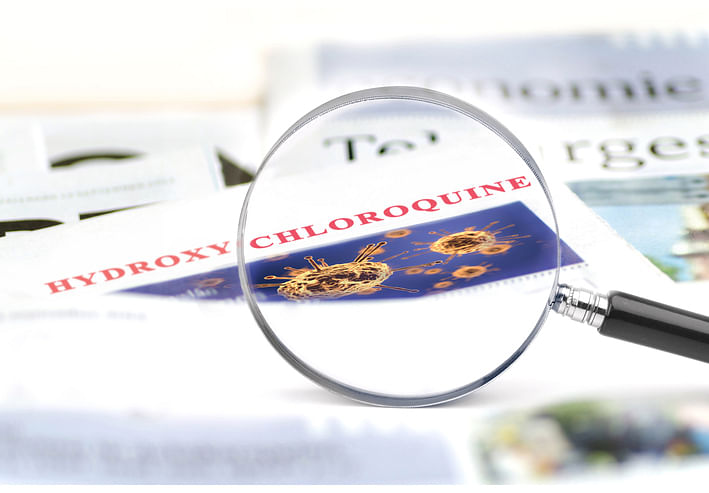
Controversies surrounding the use of anti-malarial drug hydroxychloroquine to beat COVID-19 simply refuse to die.
A day after the World Health Organisation announced resumption of an international clinical trial on the HCQ, a new study has come up demonstrating the futility of using it as a preventive medicine.
Conducted on 821 individuals in the USA and Canada, the study concluded that intake of HCQ as a prophylaxis within four days of exposure did not help a person much to protect himself (or herself) from the novel coronavirus-2019 infection.
The research paper, published in the New England Journal of Medicine on Thursday, is the first randomised control trial – considered as gold standard in scientific research -on the use of HCQ as a preventive medicine.
A group of medical scientists at the University of Minnesota, USA and McGill University, Canada enrolled 821 asymptomatic individuals for the study, out of which 719 reported a high-risk exposure to a confirmed COVID-19 cases.
The incidence of people developing the illness was 12 per cent (49 of 414 persons) among individuals getting the antimalarial as against 14 per cent (58 of 407) receiving the placebo.
The medicine was given in six doses, the first of which was 800 mg followed by one 600 mg dose in the next 6-8 hours and four subsequent doses of 600 mg each once daily.
“After high-risk or moderate risk exposure to COVID-19, HCQ did not prevent illness compatible with COVID-19 or confirmed infection when used as post-exposure prophylaxis within four days after exposure,” they reported in the NEJM.
The new study comes at a time when Indian Council of Medical Research was going full steam with the use of HCQ as a preventive medicine.
The ICMR has advised wide scale use of the HCQ among healthcare workers, police and paramilitary personnel as well as other front line workers besides the asymptomatic household contacts of every positive individual.
The medical council received support from Indian scientists who came out in the open questioning the WHO's decision to suspend the HCQ arm of the global trial in the wake of the publication of a controversial study in the Lancet medical journal. They wrote to the journal editor, questioning the study, which is now under scrutiny.
On Wednesday, WHO director general Tedros Adhanom Ghebreyesus announced lifting the temporary pause on the HCQ trial following an internal audit.
“On the basis of the available mortality data, the members of the (Data Safety and Monitoring) committee recommended that there are no reasons to modify the trial protocol. The Executive Group (of the Solidarity trial) received this recommendation and endorsed the continuation of all arms of the trial, including hydroxychloroquine,” the WHO chief had stated.
The Lancet paper and another study published in the NEJM are under independent examination by the two medical journals because of several questions on the quality of data used in the research. The data was supplied by a company called Surgisphere. Both publications issued “Expression of Concerns” on the studies that used Surgisphere data.
